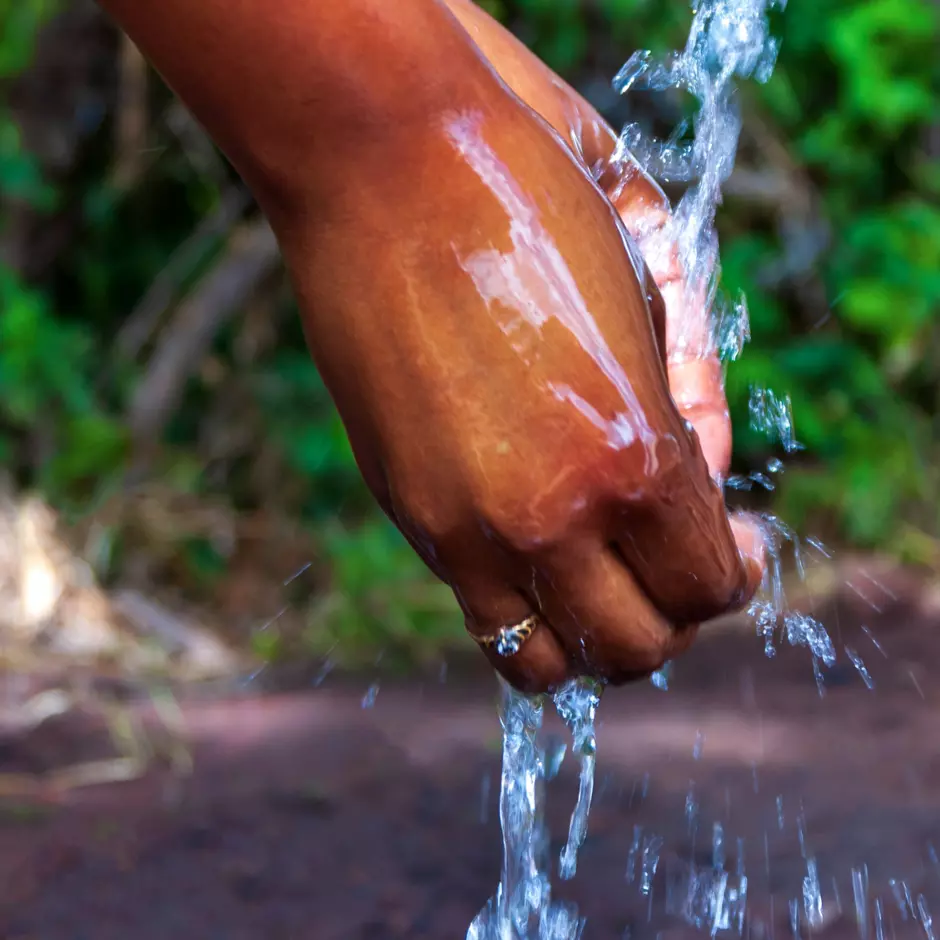During the cholera outbreak in the Democratic Republic of the Congo in 2017, hand hygiene at critical times was rare, despite improved awareness about the disease. Individuals were unable to prioritize handwashing due to several challenges (e.g., lack of handwashing facilities, water scarcity and soap costs), and many households were pre-occupied by more vital threats such as hunger and conflict. Hygiene programs aiming to stop cholera transmission during complex crises should be integrated into longer-term initiatives that focus on underlying vulnerabilities, such as food security and livelihood challenges.

Along with improving access to safe drinking water and sanitation facilities, handwashing with soap is a key measure to mitigate cholera transmission (1). During the cholera outbreak in the Democratic Republic of the Congo in 2017, a study conducted in South Kivu Province has investigated how the outbreak affected the population’s handwashing behavior (2).
The investigators found that cholera was viewed as a constant and common health threat. Frequent hygiene promotion sessions in the province had improved awareness about cholera symptoms, health impacts of the disease, and protective behaviors. However, during the outbreak, handwashing with soap and hand rinsing at critical times were rare (1% and 11%, respectively) despite self-reported increases in hand hygiene. No differences in behavior were observed between case and control households or between displaced individuals and host community households. Overall, soap was very scarce - 62% of households had no soap at the time of the visit (2).
Across case and control groups, individuals were unable to prioritize handwashing due to several challenges, including lack of handwashing facilities, water scarcity, soap costs, make-shift housing conditions, shared sanitation facilities, and extended periods spent working outside of the home. Hunger and mental health challenges were often prioritized over handwashing (2).
Control households were pre-occupied by more vital threats such as hunger and conflict. Meanwhile, case households were more motivated to practice handwashing after exposure to the disease and were better able to encourage hand hygiene among others. Nevertheless, cholera infection also caused profound non-health constraints on household income, productivity and social status, which resulted in additional barriers to purchase soap, access water, prioritize handwashing and even to obtain food. These results indicate that targeted water, sanitation and hygiene interventions (i.e., hygiene kit distribution) could be complemented by food distribution in some settings (2).
Hygiene programs aiming to mitigate cholera transmission during complex crises should be integrated into longer-term initiatives that focus on underlying vulnerabilities, such as food security and livelihood challenges. In areas often affected by cholera, hygiene programs must invest in handwashing facilities and reliable water supply systems, while working together with the communities. Hygiene programs could also integrate community experiences, which may motivate health behavior, challenge misperceptions around cholera and communicate the non-health social and economic impacts of the disease (2).
REFERENCES
1. D’Mello-Guyett L, Gallandat K, Van den Bergh R, Taylor D, Bulit G, Legros D, et al. Prevention and control of cholera with household and community water, sanitation and hygiene (WASH) interventions: A scoping review of current international guidelines. PLoS One [Internet]. 2020 Jan 8 [cited 2020 Mar 12];15(1). Available from: https://www.ncbi.nlm.nih.gov/pmc/articles/PMC6948749/
2. White S, Mutula AC, Buroko MM, Heath T, Mazimwe FK, Blanchet K, et al. How does handwashing behaviour change in response to a cholera outbreak? A qualitative case study in the Democratic Republic of the Congo. PLoS One. 2022 Apr 12;17(4):e0266849.
